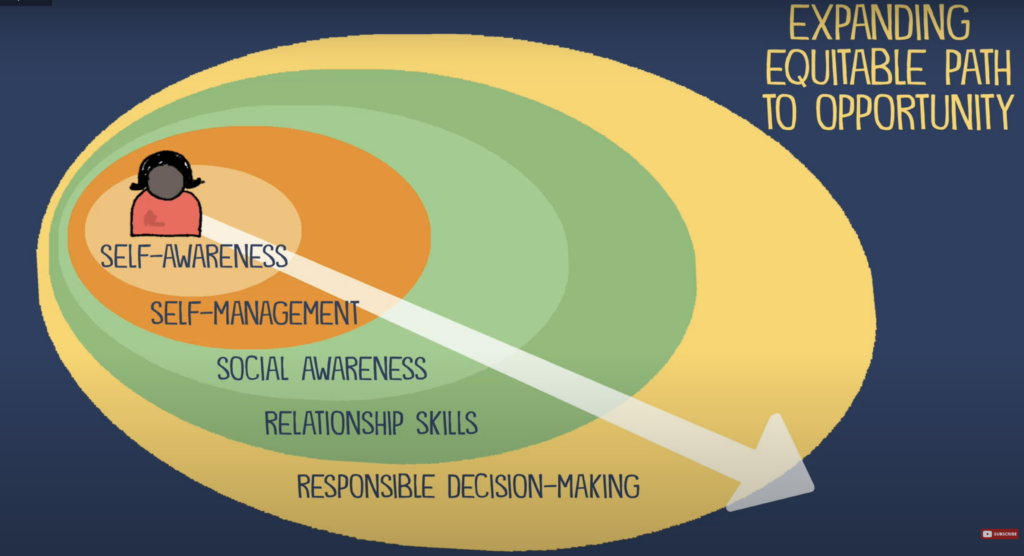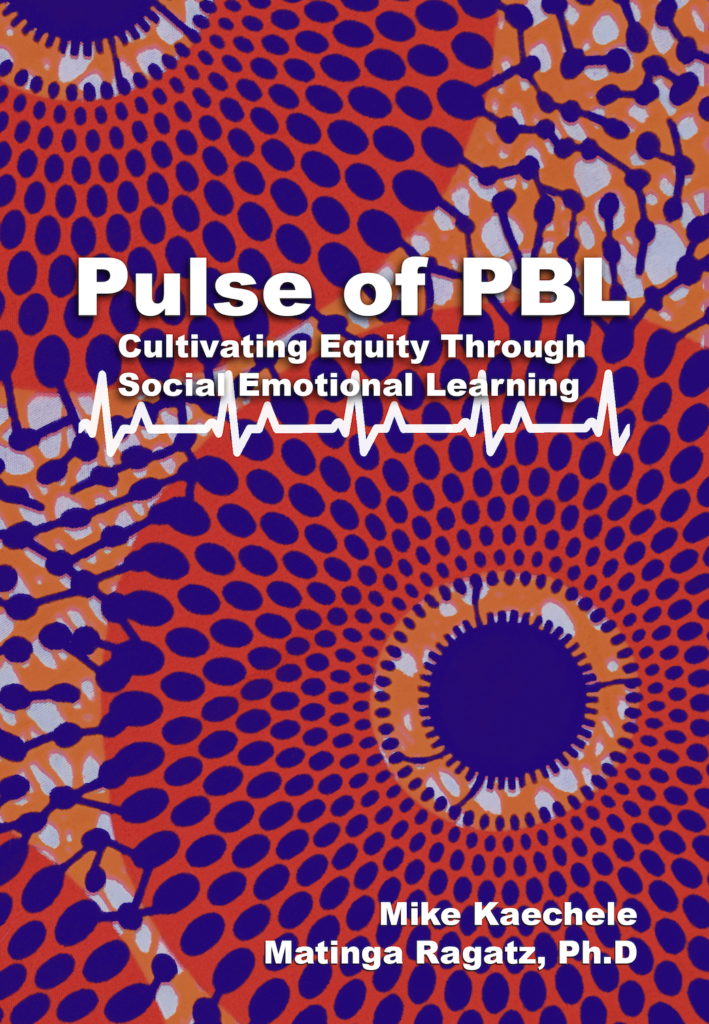Maybe you have tried Project Based Learning or Social and Emotional Learning and have not seen the results that you expected. Maybe an entire project crashed and burned. Or students don’t seem to internalize the SEL character building program that your school implemented. Students still struggle with managing themselves and their learning. The sweet spot is a combination of PBL and SEL. Let’s consider 6 benefits of combining PBL and SEL in your class.
Growing the SEL competencies in students is the “final product” of successful PBL.
1. PBL moves beyond the misconceptions of SEL
There are many misconceptions about Social and Emotional Learning. Often educators misunderstand what SEL truly is. They see it either as a set of activities-mindfulness, yoga, breathing, etc- or as a canned character curriculum taught during morning meetings or an advisory class. Instead SEL is a powerful set of competencies that need to be taught, practiced, and assessed throughout the day.
Rather than relying on a set of coping strategies that address some of the SEL competencies, PBL presents a broad, student-centered framework that provides opportunities to cultivate all of the SEL skills.
2. The PBL framework naturally embeds the space to practice SEL
We know that in order for students to develop SEL skills they must be modeled by adults and practiced in authentic situations. PBL pedagogy provides opportunities for both of these to consistently happen. The teacher shifts to a coaching and mentoring role, helping students understand content and demonstrating SEL skills such as persistence through struggle and how to speak respectfully to others.
In a traditional classroom, students spend the majority of their time quietly listening to a teacher. There is no space in the schedule for them to interact to practice SEL skills. In PBL, children work in teams to solve problems practicing Relationship Skills and Responsible Decision-Making all of the time. They have to negotiate differences, work together on solutions, and articulate their findings in a professional way. The teacher is not taking away valuable class time to practice SEL in an artificial way. Instead students are honing SEL skills while they learn their content through authentic projects.
3. PBL protocols develop SEL Skills
Project Based Learning uses many protocols throughout the process to facilitate structured inquiry. After an entry event students generate questions in a Need to Know list. Students begin practicing Responsible Decision-Making as they analyze and evaluate the problem presented to them.
Discussion protocols such as Talking Circles or Harkness Discussions teach students Relationship Skills of listening intently, communicating clearly, and disagreeing respectfully. I like to include a stipulation that before students make and share their own opinions, they must share perspectives from their investigative research:
- from the viewpoint of a blue-collar worker who lost their job
- according to an LGBTQ+ millennial
- from the perspective of latino mother
Sharing various perspectives builds empathy and Social Awareness and reveals that most issues are multifaceted and complex.
4. SEL can be readily assessed during a project.
It is important that students are consistently assessed (but not graded) on their progress in the SEL competencies. Assessment does not primarily need to derive from the teacher but should include peer and self assessment in the forms of feedback and reflection. When students regularly consider their SEL strengths and areas of improvement, they are encouraged to increase and celebrate their growth.
Feedback and reflection are integral parts of the PBL process. A simple and efficient approach is for students to set a goal for group work time such as “I can disagree with others without arguing or offending.” At the conclusion have students reflect on an exit ticket, fist to five, or a turn and talk about how successful they were on the goal.
5. PBL leads to an expanding progression toward equity as students cultivate the SEL competencies.
Launch the year with a PBL project that explores identity and builds confidence, key components of Self-Awareness. Once students understand who they are and how they fit in the world they will better manage their groups and the projects themselves.
Their self-assurance leads to students considering the views of others as they become Socially Aware. This empathy leads to stronger Relationship Skills as students respect multiple perspectives in their PBL structured inquiry. This entire process results in a more equitable classroom as students appreciate diversity of thought and approaches to project solutions.

6. Students become independent and self managing learners
It has become cliche to talk about student autonomy, voice and choice, and life-long learning. What does autonomy actually mean? We talk about these things all of the time, but how does one truly see students achieve independence?
As students progress through the concentric circles the payoff is Responsible Decision-Making. PBL leads to students who are able to identify, analyze, and evaluate global issues and local problems independently with empathy toward diverse viewpoints. They understand that that issues are complex and have the skills to investigate various perspectives to reach inclusive and just solutions. The PBL framework presents students with the opportunity to hone their SEL skills to determine equitable outcomes for their communities. This is why SEL skills are the Pulse of PBL!
Pulse of PBL

Interested in learning more about how to teach SEL competencies in a PBL framework? Check out my book with practical strategies to teach, practice, and assess SEL skills while students solve meaningful problems in their community.
Learn with me!
If you are interested in how your school can use a PBL framework to teach SEL skills. I would love to have a conversation on how I can help. I am scheduling PBL & SEL workshops for this summer right now. Check out my workshop page or drop me an email at mikejkaechele@gmail.com. I would love to chat and co-plan meaningful PD for the educators at your school.
One and done Professional Development is ineffective. Here’s a great little post about questions you should be asking before you hire a consultant. I would be glad to develop a vision with you!
